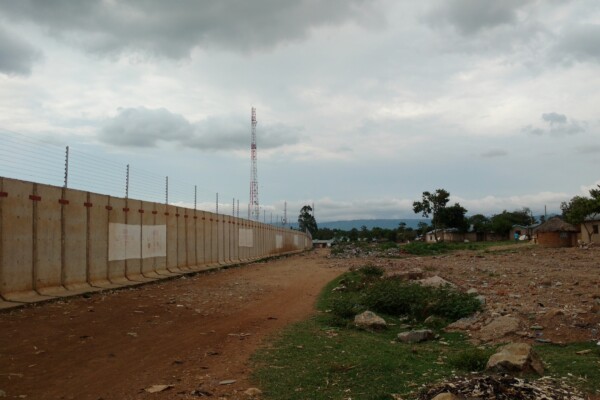
Voices from Tanzania – Social and economic impacts of land acquisition by Barrick North Mara Gold Mine in Tanzania: A case study of Komarera, Kewanja and Mjini Kati villages in Tarime District
19 juin 2024This publication is part of IPIS’ Voices from Tanzania series and its edition on “The impact of land acquisition practices in the extractive sectors of northern Tanzania”. In their Voices from Tanzania study Himiza Social Justice assesses the socio-economic impacts of land acquisition practices by the industrial Barrick North Mara gold mine on 3 villages in Tarime district, Mara region. Downl
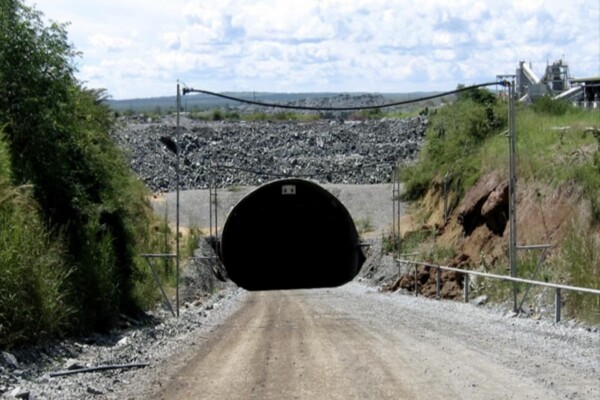
Voices from Tanzania – The social-economic impact of land acquisition practices related to Bulyanhulu Gold Mine on communities in Msalala district council, Shinyanga region
17 juin 2024This publication is part of IPIS’ Voices from Tanzania series and its edition on “The impact of land acquisition practices in the extractive sectors of northern Tanzania”. In their Voices from Tanzania study Rafiki SDO assesses the socio-economic impacts of land acquisition practices by the Bulyanhulu gold mine on 2 villages in Msalala district council, Shinyanga region. Download the report (EN) P
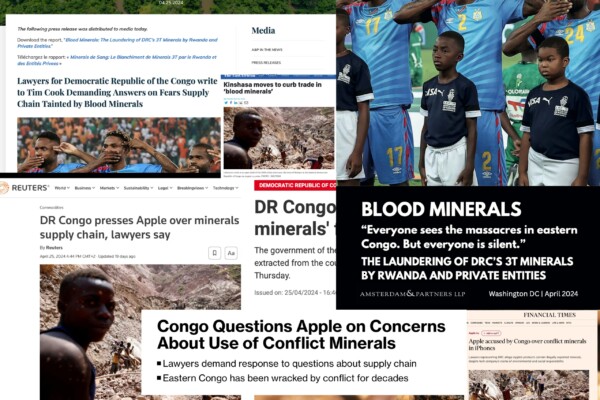
Why the DR Congo is putting Apple on the spot
15 mai 2024End of April, several international media relayed accusations against Apple sourcing ‘conflict minerals’ from eastern Democratic Republic of Congo (DRC). The reality behind these allegations is however quite complex. The reasons for the Congolese government to speak out now, seem to go beyond concerns related to human rights violations along mineral supply chains. The allegatio
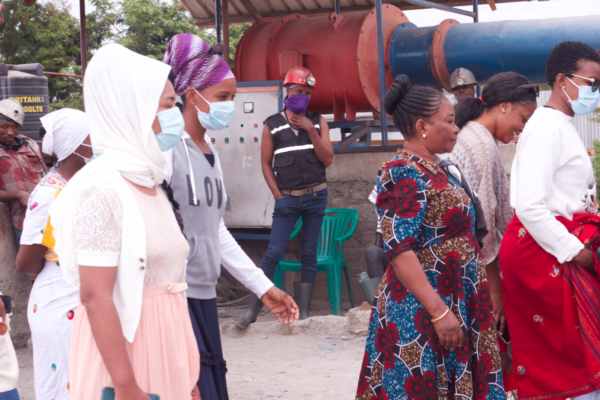
Unearthing equality: Women’s empowerment in Tanzania’s extractive sector
18 avril 2024DARUBINI – TANZANIA BRIEFING – APRIL 2024 While driving economic growth and contributing to welfare, the benefits of Tanzania’s extractive sector have not been equitably distributed among all segments of society, with women being notably disadvantaged. In this briefing, IPIS and its partners look at the realities of women’s participation in both small and large-scale mining. The briefing iden
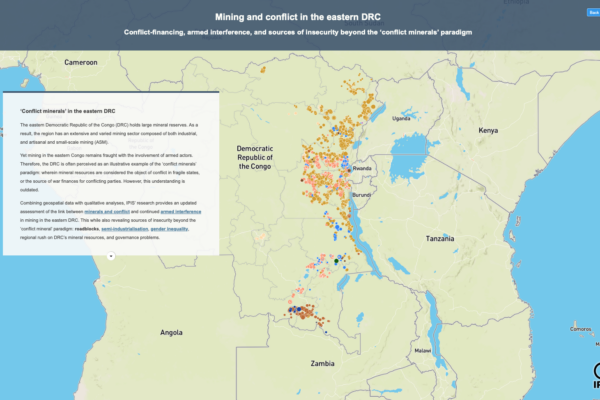
Exploitation minière et conflit dans l’est de la RDC: Une carte narrative interactive
11 mars 2024Financement des conflits, ingérence armée et sources d’insécurité au-delà du paradigme des « minerais de conflit » Dans cette carte narrative, IPIS présente les résultats de ses recherches sur le lien entre l’exploitation minière et le financement des conflits dans l’est de la République démocratique du Congo (RDC). Basée sur une enquête menée entre 2021-2023 dans 829 sites miniers actifs (représe

IPIS Event: Congolese cobalt, EU regulations, and direct investment
9 janvier 2024On the 30th of November, IPIS hosted its annual panel discussion, this time on current challenges facing the cobalt sector in the Democratic Republic of the Congo (DRC) and the potential impact of European Union (EU) regulations to improve these. Moderated by Lotte Hoex, the panel consisted of Esperant Mwishamali, independent researcher on cobalt artisanal and small-scale mining (ASM) in the DRC,
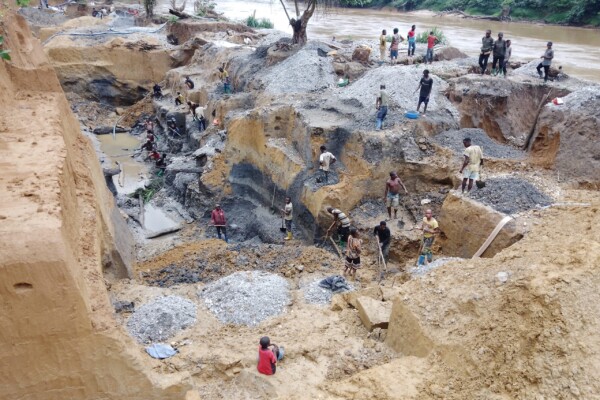
Analyse de la carte interactive des zones d’exploitation minière artisanale dans l’est de la République démocratique du Congo (Mise à jour 2023)
22 décembre 2023Depuis 2009, IPIS a cartographié et collecté des données sur plus de 2 800 sites d’exploitation minière artisanale et à petite échelle (EMAPE) dans l’est de la République démocratique du Congo (RDC). Dans ce rapport, IPIS fournit sa mise à jour 2023 de l’état de l’EMAPE dans l’est de la RDC, basée sur des données provenant de plus de 829 sites artisanaux et de petite échelle dans la zone entre 202
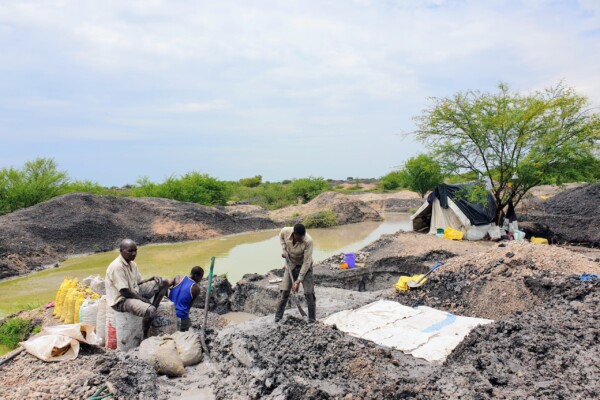
Access to remedy and extractive industries: The challenges of legal aid providers in Tanzania
20 décembre 2023DARUBINI – Tanzania Briefing – December 2023 Tanzania’s rich mineral reserves and thriving extractive industries provide a promise of economic prosperity and development. However, when these industries cause harm to both surrounding communities and environments, access to remedy often remains difficult. In this briefing, IPIS and its partners address challenges facing Legal Aid Providers (LA

Increasing awareness of policy reforms on gender equality issues in artisanal and small-scale mining in eastern DRC: Case study of the Numbi, Nzibira and Nyabibwe sites
13 décembre 2023The mineral resources of the eastern Democratic Republic of the Congo’s (DRC) provide an important source of employment for both men and women involved in artisanal and small-scaling mining (ASM). Yet opportunities are not equal for men and women. Based on a series of interviews with various ASM stakeholders at the mines of Numbi, Nzibira and Nybibwe in the province of South Kivu, this
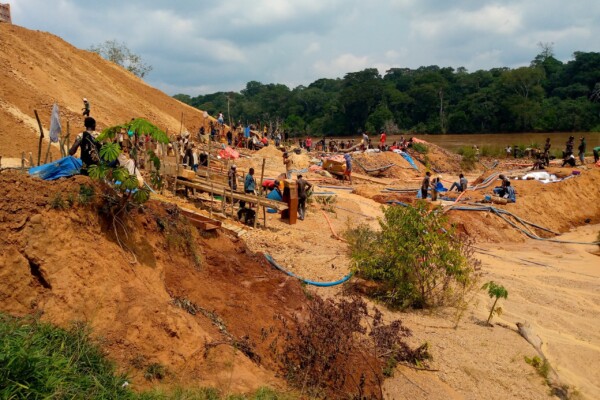
Cartographie des sites minieres artisanaux dans la région du Mambasa occidental, province de l’Ituri, République démocratique du Congo
22 novembre 2023La partie occidentale du territoire de Mambasa, dans la province de l’Ituri, fait l’objet d’une attention limitée de la part des autorités nationales et des partenaires internationaux. Pourtant, l’expansion des activités d’exploitation artisanale et à petite échelle de l’or (ASM) y est importante, y compris dans la Réserve de Faune à Okapis (RFO). Ces opérations minières ont provoqué des tensions
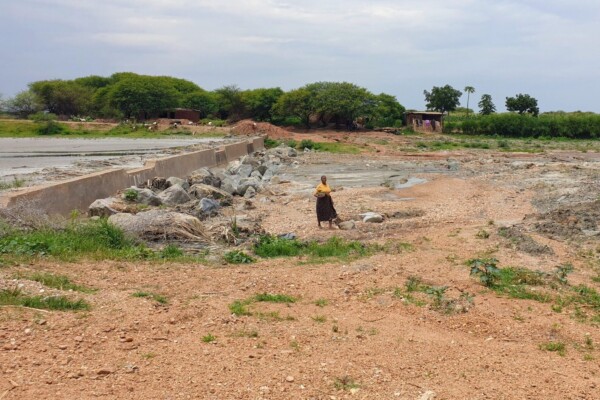
Petra Diamonds’ attempts to come clean with its tarnished past in Tanzania
9 novembre 2023Challenges in securing access to remedy and restoring community relations after serious human rights abuse at the Williamson diamond mine This report assesses the efforts by Petra Diamonds to restore community relations and remediate the legacy of serious human rights abuse at its Williamson diamond mine in Tanzania. Download the report The Williamson Diamonds mine, adjacent villages a
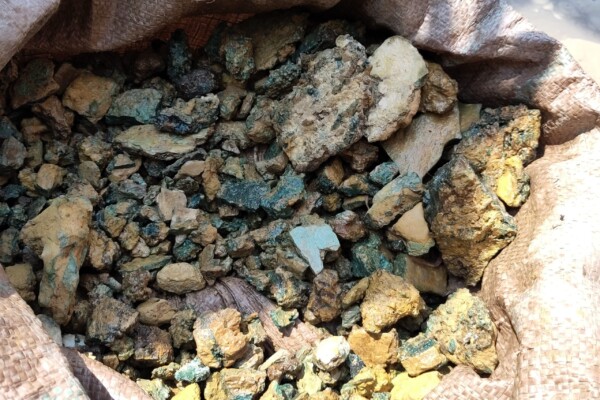
The EU Critical Raw Materials Act: Handshakes, extracting, processing and recycling. Why not reducing and prioritizing?
7 novembre 2023The European continent struggles with the dilemma to secure its raw material supply chain for the sake of its green transition and energy sovereignty, at the cost of more pollution, ecosystem destruction and handshakes with undemocratic resource-rich countries. The Critical Raw Materials Act (CRM Act) proposes a strategy to secure a sustainable supply of critical raw materials, and is currently ne

Déclaration conjointe d’ONG : Le règlement de l’UE sur les ‘minerais de conflits’ peine à atteindre ses objectifs
19 octobre 202320 ONG appellent l’UE à renforcer l’application des règles et à adopter de nouvelles mesures Téléchargez la déclaration conjointe Bruxelles, le 19 octobre 2023 Plus de six ans après son entrée en vigueur, le règlement de l’Union européenne sur l’approvisionnement responsable en étain, tungstène, tantale et en or provenant de zones de conflit ou à haut risque peine à atteindre ses principaux o
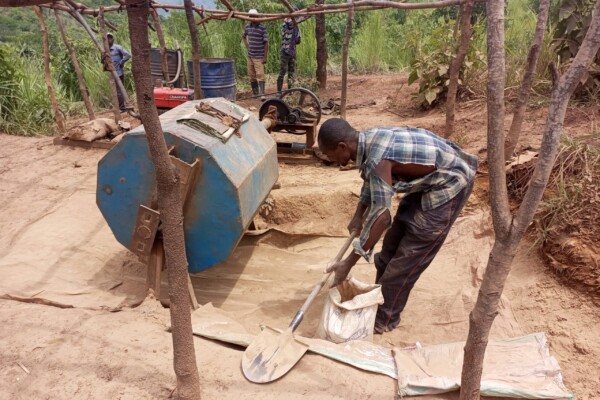
Sécuriser l’insécurité: Orpaillage semi-industriel et violence à Mwenga, Sud-Kivu en République Démocratique du Congo
6 octobre 2023Depuis 2011, l’introduction progressive de nouveaux équipements miniers tels que les concasseurs a conduit à une mécanisation croissante des opérations d’exploitation artisanale de l’or ainsi qu’à l’arrivée de sociétés minières semi-industrielles dans le territoire de Mwenga (Sud-Kivu). Ce rapport fait partie d’un projet financé par USAID visant à examiner les liens entre les conflits armés, l’ins
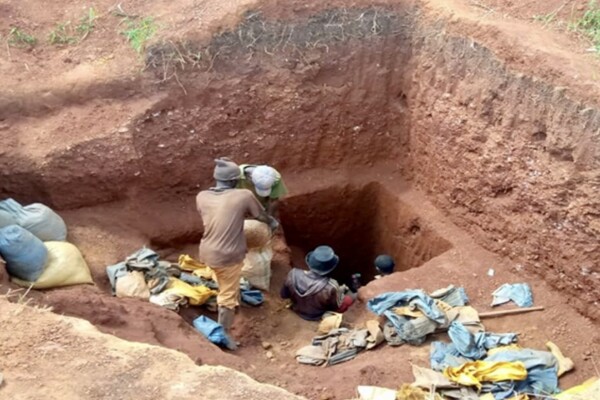
Voix du Congo: Le rôle de l’artisanat minier dans le processus de démobilisation et réinsertion des miliciens de la FRPI dans la chefferie de Walendu Bindi, Ituri
22 septembre 2023Une publication de la série: VOIX DU CONGO Située au nord-est de la République démocratique du Congo, la province de l’Ituri a connu près de deux décennies d’activisme du groupe armé Force de Résistance Patriotique de l’Ituri (FRPI). L’échec du programme de démobilisation, de désarmement et de réintégration (DDR) lancé en 2020 et resté inachevé a conduit les combattants de la FRPI à retourner de m
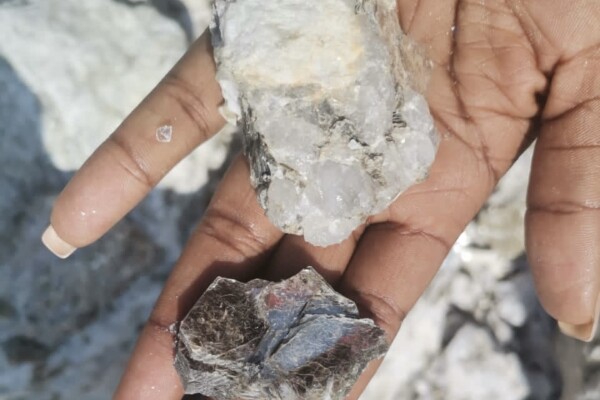
Chinese dominance in Zimbabwe’s lithium mines: Potential risks, vulnerabilities and opportunities in the critical minerals sector
20 septembre 2023In the global race for energy transition minerals that are meant to help address the climate change crisis, Zimbabwe is one of the few African countries with important lithium reserves. If mining projects are managed transparently and with respect for property rights, human rights and openness to competitive investments, it can potentially lead to growth and development that has so far elude

Tanzania’s mining policy on local content: Progress and associated challenges
13 septembre 2023DARUBINI – Tanzania Briefing – September 2023 Tanzania has experienced a boom in its mining sector in the past few years. Yet there are concerns about the limited benefit this has provided to Tanzanian communities , due to a lack of local participation in the sector’s value chain. This briefing evaluates the implementation of legislation regulating local participation thus far and identifies
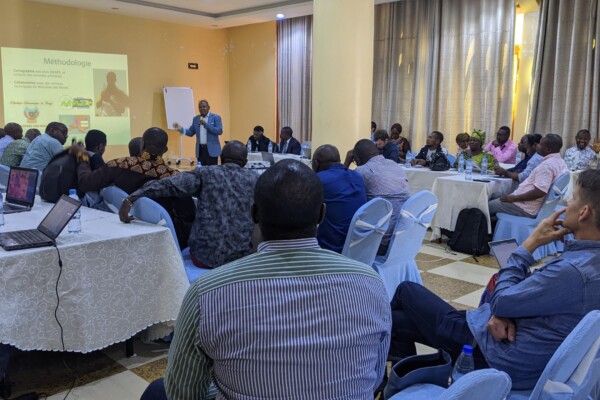
Sharing the results of two years of research into eastern DR Congo’s artisanal mining sector
12 juillet 2023Since 2021 and in partnership with USAID and the Congolese Ministry of Mines (through its technical service SAEMAPE), IPIS has been undertaking a large-scale project to map and analyse artisanal mining supply chains and conflict financing dynamics in eastern DRC. A restitution meeting was held in Goma (North Kivu) on June 21st, 2023 to present and discuss the results produced over the past two yea
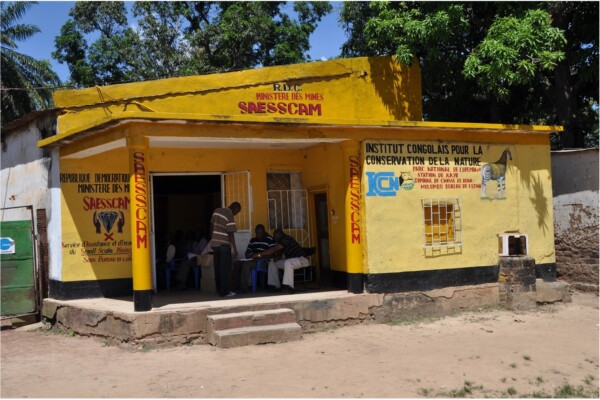
Taxes et prélèvements dans les sites miniers artisanaux du Sud Kivu et de l’Ituri : combien paie un mineur artisanal ?
14 avril 2023Ce rapport est le résultat d’une étude de terrain de grande ampleur sur la fiscalité du secteur minier artisanal dans deux provinces de l’est de la République démocratique du Congo, l’Ituri et le Sud-Kivu. La principale conclusion est que les réglementations et les pratiques actuelles dans ce domaine contribuent non seulement à la contrebande de minerais – laissant une partie du potentiel fiscal d
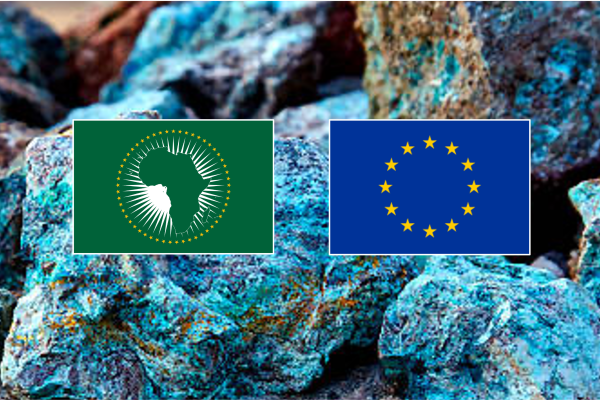
Critical minerals and the need for equal partnerships with African producers
12 avril 2023Before Western policymakers recognized the immense strategic importance of minerals for green energy production in the 21st century, it was primarily seen as the main source of conflicts in Africa, especially when they were extracted in the African Great Lakes Region.

